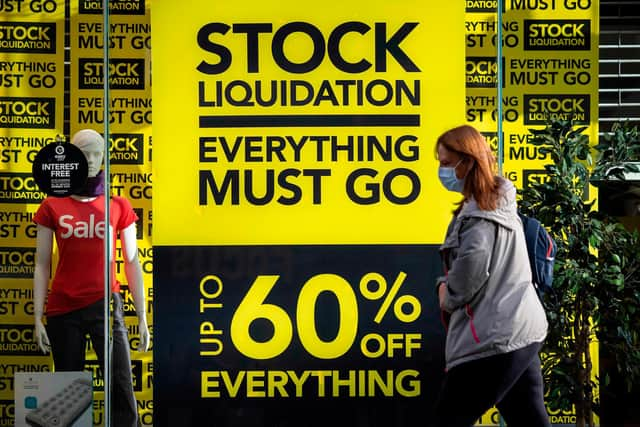What directors need to think about as protections to prevent insolvency wind down - Nicola Ross
Specifically, the suspension of the provisions around wrongful trading will be over and creditors can once again seek to put companies who owe them money into liquidation.
The end of protections has already been delayed numerous times. The UK Government is undoubtedly concerned that ending the protections all at once will lead to a real economic shock. For that reason, further extensions can't be ruled out, but we do know that the protections are not going to last forever and, when they end, businesses will have to adapt quickly.
Directors need be to asking now, are we prepared?


Advertisement
Hide AdAdvertisement
Hide AdThis is the time to take stock of their company’s financial position. If the company is in financial difficulties, directors need to seriously consider whether it is likely things will turn around. If they aren't going to do so, then directors need to do what they can to ensure they don't act in a way that prejudices the company's creditors.
Deliberately incurring more debt when the insolvency seems a sure thing will get the directors into difficulty and will risk them being held personally liable for any loss suffered by creditors. While the wrongful trading suspension has protected them to a certain extent, where inadvertent behaviour has caused a loss to creditors, deliberate conduct could lead to personal liability.
For those businesses who are struggling but the directors think they can realistically turn it around, then an essential first step will be to come to payment terms with creditors and, once they do, stick to them.
Although the pandemic has created a common bond in business, it's likely that once stronger debt collection tools come back on stream, lots of creditors will do all they can to recover what they’re owed, so it will be important to agree and maintain payment plans.
HMRC shouldn't be overlooked either. Although the government has said it will take a “flexible” approach to debt-collection for those that engage with HMRC on repayment, this is unlikely to be the case for those businesses that take a less proactive approach.
As well as sorting out money owed to others, businesses should also check that their own credit control is operating properly, ensuring that it is also recovering what it is owed. It is often the person that shouts the loudest who gets paid first – or, at least, not put to the end of the queue.
It’s a very unfortunate truth that other businesses might be beyond saving. There are no doubt numerous business that were on the brink before the pandemic started. They have taken advantage of the government support over the last year and a half, but the end of that help may well leave them back where they started.
Advice
For those companies, directors will want to avoid possible personal liability for the company's debts so should be taking advice from a qualified insolvency professional.
Advertisement
Hide AdAdvertisement
Hide AdIt's also important not to presume that simply dissolving the company will solve all of a director's problems. It's not uncommon for company directors, particularly of smaller businesses, to seek to avoid the costs of a formal liquidation process by just shutting up shop and dissolving the company informally or letting it be struck off by Companies House.
However, doing that has always been a risk, and now more than ever. New legislation is currently making its way through the UK Parliament that will allow the Insolvency Service to investigate the conduct of directors of dissolved companies.
Where appropriate, such directors could be disqualified from acting as a company director for up to 15 years or even take on personal liability to compensate creditors where the director's actions caused identifiable losses.
The intention is that the new law will apply retrospectively and so will cover, for example, what a director did with any money received from government-backed loans. Retrospective laws are unusual and the fact that this one is proposed to be demonstrates how serious the government is about clamping down on irresponsible directors.
The end of September will mark the return of a pre-pandemic issue for businesses – what do they do about debts?
The ones owed money will be able to be much more proactive in recovering what they're owed and it's important that they get on the front foot quickly. For businesses in uncertain waters, prudence and an honest review of the company’s position should be the top priority over the next month.
Nicola Ross is a partner in the commercial litigation team at independent Scottish law firm Morton Fraser.
A message from the Editor:
Thank you for reading this article. We're more reliant on your support than ever as the shift in consumer habits brought about by coronavirus impacts our advertisers.
If you haven't already, please consider supporting our trusted, fact-checked journalism by taking out a digital subscription.
Comments
Want to join the conversation? Please or to comment on this article.